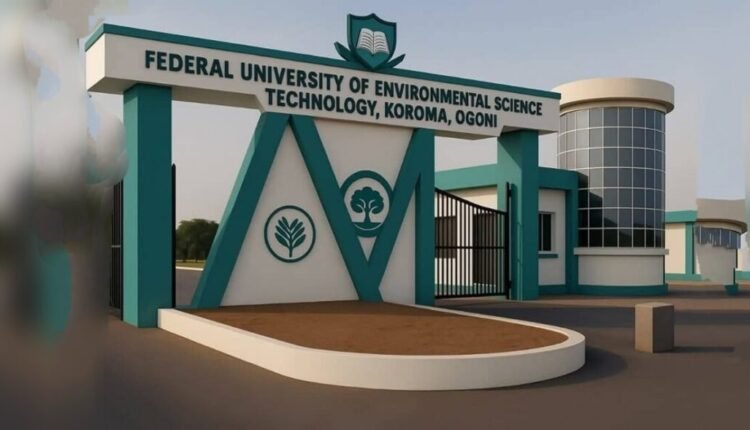FG inaugurates governing council for Federal University of Environment, Technology
The Federal Government has inaugurated the Governing Council and Principal Officers of the newly established Federal University of Environment and Technology, Koroma/Saakpenwa, Rivers State.
The Minister of Education, Dr Tunji Alausa, while inaugurating the council in Abujaa on Monday, said the establishment of the university was to expand access to quality higher education in strategic fields.
Alausa said the university was put in place to address both national and global development challenges, particularly in environmental sustainability and technological innovation.
“The establishment of this university is not just about expanding our tertiary education landscape.
“It is a deliberate, strategic response to the urgent environmental challenges confronting Nigeria and the wider world,” Alausa said.
He explained that the decision to site the university in Koroma/Saakpenwa in Rivers State was both symbolic and intentional, given the region’s central role in Nigeria’s natural resource base and environmental realities.
“The university is envisioned as a centre of excellence in environmental sciences, renewable energy, climate change adaptation, disaster risk management, and sustainable technological research.
” It is expected to generate homegrown, research-driven solutions that respond to both local needs and global aspirations,” he said.
Congratulating the newly appointed Council members, Alausa urged them to demonstrate visionary leadership, strategic oversight, accountability, and unwavering integrity.
He emphasised the importance of upholding the university’s core values, promoting merit-based decisions, safeguarding institutional autonomy, and ensuring harmony among stakeholders.
“There is no room for political interference or parochial interests.
“The success of this university depends largely on the strength of character and collective wisdom of this Council,” he said.
Addressing the Vice-Chancellor and other Principal Officers, the minister charged them to build a foundation on clarity of vision, academic excellence, faculty development, student experience, and global best practices.
“It is a call to national service. Your appointments was based on your contributions to the society,” he said
He also called for strong partnerships with the host community, relevant agencies, and stakeholders to foster peace, productivity, and innovation.
Alausa reaffirmed Federal Government’s commitment under President Bola Tinubu’s Renewed Hope Agenda to support and strengthen Nigeria’s education sector through targeted investments, governance reforms, and institutional capacity building.
“The Ministry is working closely with TETFund and other development partners to provide infrastructure, support research, and promote operational efficiency.
Read Also: Benue lawmaker decries continuous killing of his constituents
“We are also advancing key reforms around quality assurance, autonomy, and performance-based funding, ensuring that universities are not just established but empowered to thrive and lead, ” Alausa added.
The minister further said that President Tinubu had approved funding for personnel and operational costs for the institution, reaffirming his administration’s commitment to ensuring that the university thrives.
In his remarks, Minister of the Federal Capital Territory (FCT), Nyesom Wike, lauded the choice of Ogoniland as the host for the university, citing its peaceful and scenic environment as ideal for learning and research.
Wike, represented by the Minister of State for FCT, Dr Mariya Mahmoud, emphasised that the institution would not only serve as a beacon of innovation but also as a catalyst for socioeconomic growth in the Niger Delta region.
Responding, Prof. Don Baridam, the Pro-Chancellor and Chairman of the Governing Council of the University, pledged on behalf of the council members to deliver on their mandate with “humility and a deep sense of purpose”.
Baridam described their appointment as a “call to national duty” at a time when environmental sustainability and technological innovation were critical to Nigeria’s development.

